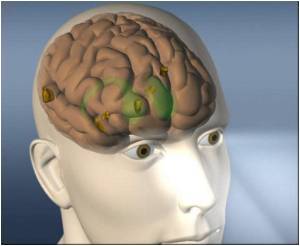Orphan drug dichloroacetate (DCA) has been found effective against aggressive brain cancer in a small Canadian study.

“Solid tumors, including the aggressive primary brain cancer glioblastoma multiforme, develop resistance to cell death, in part as a result of a switch from mitochondrial oxidative phosphorylation to cytoplasmic glycolysis. This metabolic remodeling is accompanied by mitochondrial hyperpolarization. We tested whether the small-molecule and orphan drug dichloroacetate (DCA) can reverse this cancer-specific metabolic and mitochondrial remodeling in glioblastoma,” wrote Evangelos D. Michelakis of the University of Alberta and his colleagues.
Freshly isolated glioblastomas from 49 patients showed mitochondrial hyperpolarization, which was rapidly reversed by DCA. In a separate experiment with five patients who had glioblastoma, they prospectively secured baseline and serial tumor tissue, developed patient-specific cell lines of glioblastoma and putative glioblastoma stem cells, and treated each patient with oral DCA for up to 15 months. There too the researchers tasted success.
In four of the five glioblastoma patients, there was no further brain cancer growth after initial treatment. Follow-up studies on cells taken from these patients showed that DCA killed cancer cells.
Nerve damage can occur at higher doses of DCA, but the study's authors suggest that at the dose used in the study, the drug might be able to stem tumor growth without serious side-effects.
"We can conclude that DCA is possibly safe and maybe clinically effective in some patients," said Dr. Michelakis.
Advertisement
Funding for the Alberta University research was raised by a concerned community, apart from what could be obtained from federal agencies and from the university itself - pharmaceutical companies were not too keen on further research on DCA as it was a generic drug with no patent on it.
Advertisement
If researchers can understand how the tumour adapts its glucose metabolism to reap survival advantages, then DCA could be used in combination with other therapies to extend the lives of glioblastoma patients, Dr. Abhijit Guha, a professor of surgery at the University of Toronto, told CBC News. Currently, their average survival is 14 to 16 months with standard treatments.
style="mso-special-character: line-break">
style="mso-special-character: line-break">
Source-Medindia
GPL










